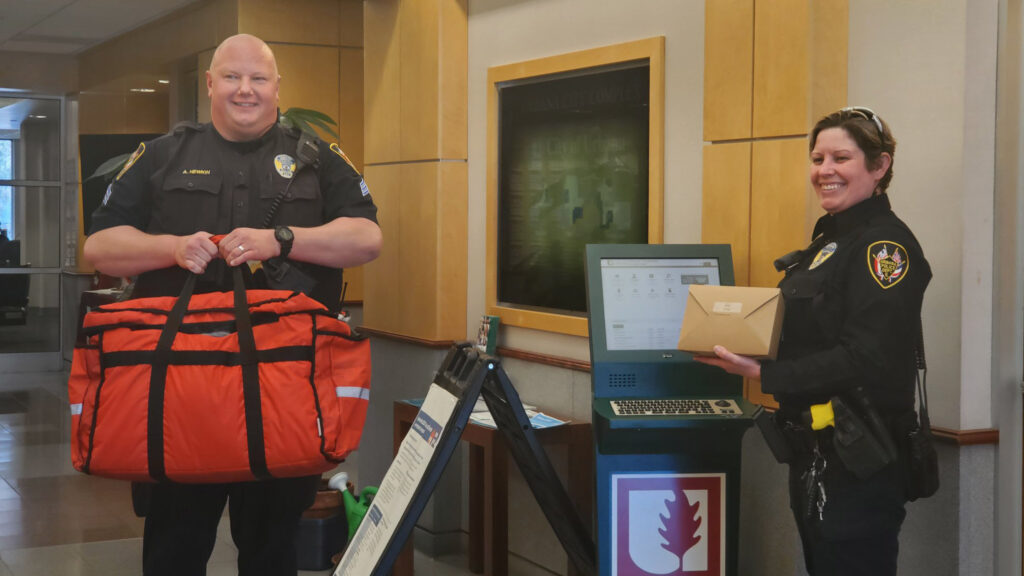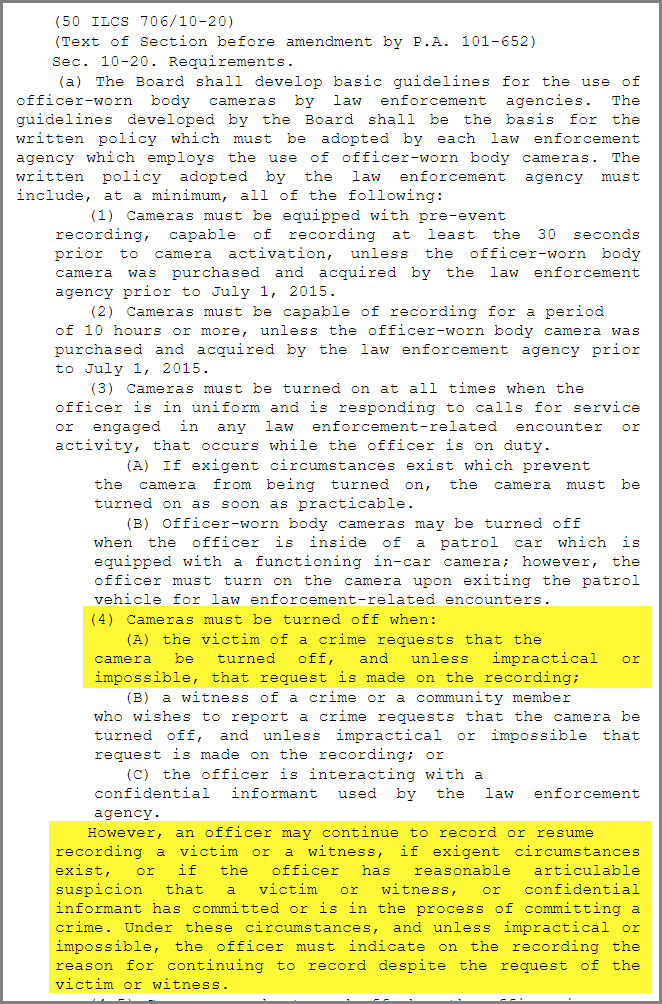
In the spring of 2020 Urbana Police officers responded to a call from a resident who had just been the victim of an assault. The victim ran from the attacker and quickly called the police, hoping for help. The attacker hid in an unknown location nearby.
When Officer Sarah Links arrived, she parked directly in front of the victim’s home, giving away the victim’s location to anyone watching, including the attacker. When Links interviewed the victim, the victim asked that Links turn off her body camera, but Links refused to turn it off. Links could not articulate why she was continuing to record the victim against their will.
In this situation, the Illinois Law Enforcement Officer-Worn Body Camera Act, enacted in January of 2016, is very clear about the officer’s obligations. According to 50 ILCS 706/10-20, an officer must turn off their body camera if a victim or witness of a crime requests that they do so. If an officer insists on recording, they must articulate on camera that they have reasonable suspicion that the victim has committed a crime.

Officer Links had no such suspicion, and made no such utterance, so the law required her to turn her camera off, but she repeatedly refused. The victim requested a supervisor, and Sgt. Andrew Hewkin arrived, also recording with his body camera. At this time, the victim had made nine requests for them to desist, but both officers repeatedly refused to stop recording, and the situation was only exacerbated.
The victim specifically cited the Body Camera Law, but despite wearing body cameras on a daily basis, neither officer was remotely familiar with the Illinois statute that went into effect over four years prior. At one point, Sgt. Hewkin declared to the victim, “I’m not gonna argue body camera law with you, that’s out of my realm.”
It would seem if any person is responsible for knowing and enforcing the laws of the state, a police officer, especially a senior supervisor equipped with and actively operating a body camera, would believe those laws to be within their “realm”. One might wonder if such an officer carries a similar disinterest for the proper and lawful use of their pistol.
Urbana Police Chief Bryant Seraphin did review this situation after the victim filed a complaint. Seraphin found that Officer Sarah Links acted improperly, but for some reason excused Sgt. Andrew Hewkin from any wrongdoing. Seraphin did not discipline the officers in any way. When the victim filed the complaint, the UPD had to flag the illegal recordings, retaining what should have never existed for 2 years.
It is unnerving that Urbana Police Officers refused to follow state law regarding recording victims of crimes – laws that had been in place for over four years – and even expressed a certain disdain for the existence of such laws. Now that the Urbana City Council is considering installing Automatic License Plate Reader (ALPR) cameras throughout the City, one must wonder how well the UPD will conform to any internal rules about how to utilize the ability to track the driving habits of every person in Urbana.
Check CU has verified the accuracy of the information in this article. For privacy reasons, supporting documentation will not be posted publicly. In the case cited above, the victim felt uncomfortable with the officers violating the body camera law and ultimately decided not to speak to them.

This disturbing story also exemplifies the blame-the-victim mentality that distinguishes our local police style of handling sexual predator crimes, as well as domestic violence – certainly in my own experience, and that of numerous people whose stories I have heard.
The fact that a female Urbana Police Department officer is just as willing to treat victims disrespectfully, and as suspects, as her male supervisor is consistent with my own experience as well; and this kind of revictimization generates its own special kind of trauma. I think this also shows, objectively, how the UPD picks and chooses which type of minority officers (i.e., psychological profiles) they will allow on the force – i.e., compliant, don’t-rock-the-boat, types – as well as the sort of toxic misogynist culture that inducted female officers must comply with in order to maintain approval from their senior supervisors. Again, consistent with my own experience.
For every victim who files a police misconduct complaint, as this brave and smart woman did, there exist a multitude who cannot, for a range of reasons.